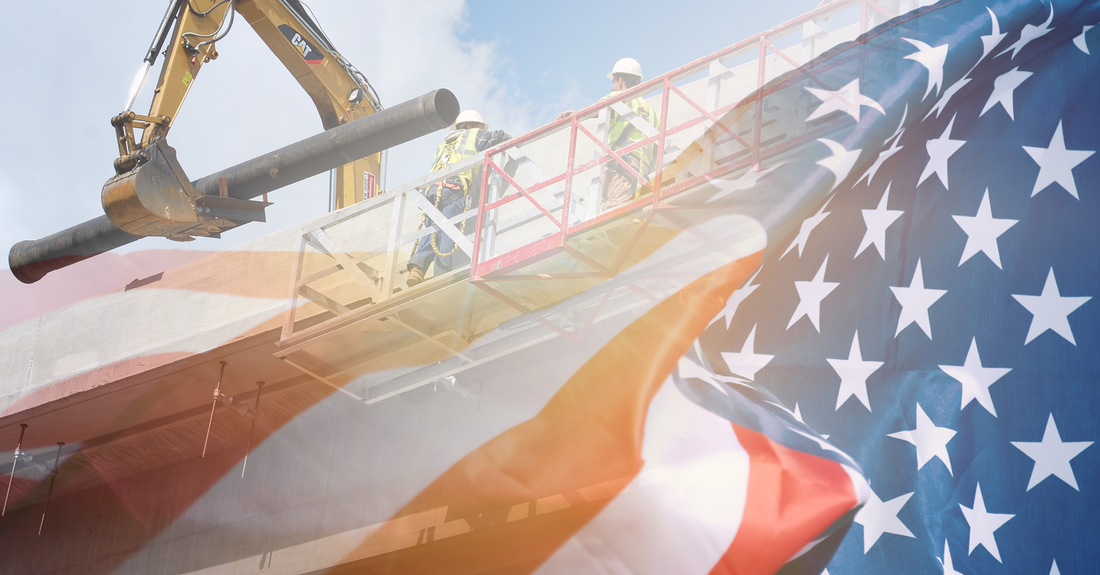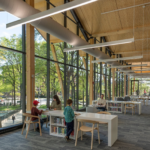Whether you’re buying, selling or building in the Land of 10,000 Regulations – this means you
If you’ve been hearing about the Build America, Buy America Act (BABAA) and wondering what it means for construction in Minnesota, you’re not alone. BABAA is already making a big impact—especially on federally funded infrastructure and public works projects.
At Stonewing Builders, we see it as both a challenge and an opportunity. Here’s what you need to know about the new law, how it affects both government and residential construction, and why it’s a step forward for the industry and the country.
What Is BABAA?
BABAA was passed as part of the Infrastructure Investment and Jobs Act (IIJA) in 2021. Its purpose? Ensure that federal infrastructure dollars are used to buy American-made construction materials.
Under BABAA, federally funded construction projects must use domestically produced:
- Iron and steel
- Manufactured products
- Construction materials like copper wiring, insulation, conduit, and drywall
This new requirement affects public buildings, roads, bridges, water systems, and more. If federal funding is involved, domestic sourcing is now mandatory.
How BABAA Affects Public Construction Projects
Stonewing Builders regularly partners with Minnesota school districts, cities, and local government agencies. Many of these projects are supported by federal funds, making them subject to BABAA.
We’re already seeing changes:
- Longer lead times on materials like rebar, conduit, and fasteners
- Higher costs for U.S.-made materials
- Limited availability of previously imported items
However, there’s good news too. U.S. manufacturers are ramping up, local suppliers are adapting, and the construction supply chain is getting stronger across the board.
Case Study: BABAA in Action on a Minnesota School Roof Project
On a recent school project, imported steel supports had to be swapped for U.S.-produced alternatives to meet BABAA guidelines. We sourced compliant steel from a Midwest mill, adjusted the timeline slightly, and delivered a result that supported American jobs and manufacturing.
It’s a great example of how compliance can align with long-term resilience.
Does BABAA Impact Residential Construction?
Not directly—unless a residential project receives federal incentives or HUD funding, however, ripple effects are real. With growing demand for domestic materials, some delays and price shifts are occurring in the private sector too.
Our advice: Get in front of things and plan ahead. Whether you’re upgrading your HVAC system or adding an addition to your garage, early material sourcing is key.
Why BABAA Matters for the U.S. Construction Industry
Yes, BABAA means more paperwork, planning, and supplier vetting. But it also:
- Strengthens U.S. supply chains
- Boosts domestic manufacturing
- Creates good-paying construction and factory jobs
- Increases project accountability and transparency
- Builds a stronger future for our great country
At Stonewing, we support the move toward resilient, locally sourced construction. It aligns with our patriotic values—and our long-term vision.
Stonewing’s Approach to BABAA Compliance
We’re ready and adapting fast by:
- Pre-qualifying U.S.-compliant suppliers
- Training our project managers in BABAA documentation
- Partnering with local and woman-owned vendors
- Setting realistic expectations with public and private clients
BABAA is here to stay, and we’re prepared to help agencies and property owners navigate it smoothly.
Looking Ahead
At Stonewing Builders, we’ve always believed in craftsmanship, communication, and a no-fail work ethic. BABAA reinforces those principles and points the construction industry toward a stronger, more self-sufficient future.
We’re proud to build structures—and an economy—that last for our next generations to come.Need help navigating BABAA requirements?
Contact us at info@stonewingbuilders.pro or Get a Quote for your next public or private project.








